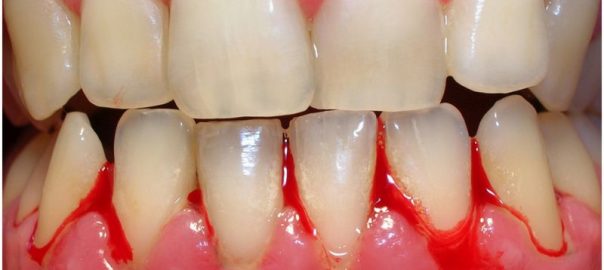The older you get, the more likely you are to develop periodontal disease or gum disease. However, the periodontal disease not only appears in older people, but there are also risk factors such as poor dental hygiene, diabetes, cardiovascular diseases, medication for other conditions, hereditary factors and stress, for example, that can allow the development of this disease at any stage of life.
If your mouth is healthy, your gum should fit snugly around each tooth. If, on the other hand, periodontal disease is present, the gingiva begins to retract, leaving ever wider and deeper gingival grooves around the teeth, which are called “periodontal pockets”. If left untreated, the teeth would become less and less clamped and could eventually fall out. However, with early detection and a correct treatment plan, such tooth loss could be avoided.
How is a periodontal pocket formed?
Bacteria in the mouth are constantly forming a film of plaque on your teeth, especially in the gum area. If this plaque is not removed, it becomes tartar, which could only be removed by dentist in Vikaspuri through professional dental cleaning.
The inflammation produced by plaque and tartar can cause periodontal pockets between the gum and teeth. When the gum retracts, the inflamed tissue leaves a space where more plaque and tartar accumulates, posing a threat to the bone and tissues that support the teeth.
How is periodontal disease diagnosed?
If you start to notice bad breath, bleeding or that the gums are red, inflamed or more separated from the teeth, make an appointment at your dental clinic in Vikaspuri as soon as possible. First, your dentist in Delhi will evaluate the tissues of the mouth and the gingival grooves that have formed around the teeth. Then, if necessary, determine the level of development of the periodontal disease.
How are periodontal pockets treated?
The first step in treating the periodontal disease if it is in an early stage like gingivitis is to carry out a professional dental cleaning at the dental clinic in Janakpuri. By removing the plaque and tartar that builds up between the teeth and gum, the gum can recover and get closer to the teeth. If it is in a more advanced phase such as periodontitis, the basic periodontal treatment would consist of performing curettage, scraping or root planing.
However, if periodontitis is even more advanced and periodontal pockets persist, your dentist in Janakpuri will recommend that you resort to oral surgery to stabilize the progression of the disease. Once periodontal treatment is completed, you will need to go to check-ups scheduled by your periodontist to carry out necessary periodontal maintenance and avoid a recurrence.
Prevention at home
Periodontal disease can be prevented. However, it is essential to have a good oral hygiene routine and get regular dental check-ups.
Brush your teeth at least twice a day with a soft toothbrush so that you get to the gum line where plaque builds up. Remember that flossing is as important as brushing your teeth, so make sure you do it right. The use of mouthwash is also a good prevention tool. Lastly, don’t forget to change your toothbrush every three to four months.
The diagnosis and treatment of periodontal disease and periodontal pockets in an early stage can avoid affecting bone and therefore can prevent tooth loss.

